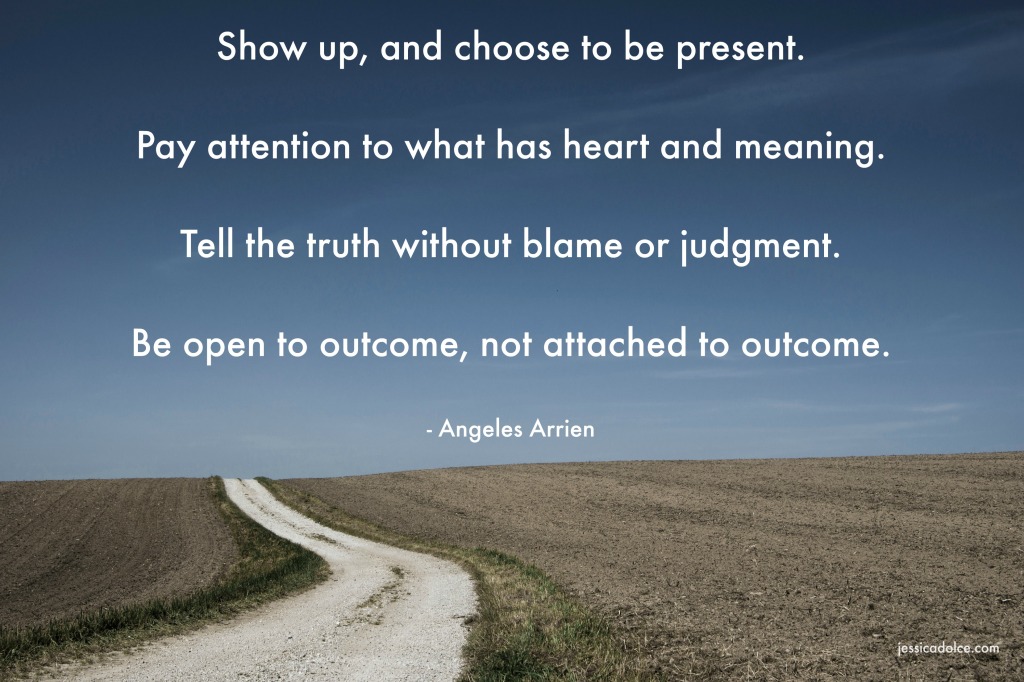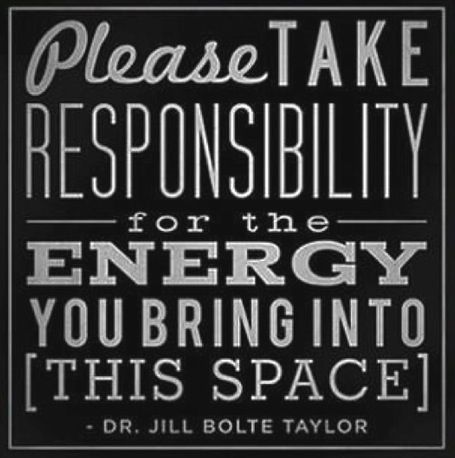Letting Go of the Outcome: How Do You Measure Success?

Today, the day after Election Day, I know there are more than a few animal welfare advocates who are feeling pretty bummed. In Maine, where I live, a ban on the cruel practice of bear baiting was voted down. And in Aurora, Colorado, voters were able to keep a pit bull ban in place (for now!). In both areas, advocates worked tirelessly to make a difference for animals in their communities. In both cases, despite their hard work, they lost.
The outcome wasn’t what they had hoped and worked for. But the outcome isn’t what determines if they were successful or not.
Does that sound a little crazy? I mean, obviously, we all wanted the votes to go in a different direction and we’d be celebrating today if that had happened. But the outcome often has little to do with the work itself.
These advocates gave their all. They did a fantastic job of outreach, education, and door-knocking work in our communities. They conducted themselves in such a way that they could be proud of themselves. They used their time well. None of that has changed now that we know the outcome of the votes. It doesn’t negate or undo the months of work they put in.
That’s because:
How we choose to engage with our work, each and every day, is just as important as the outcome.
That is how we can measure our success. Are we conducting ourselves in an ethical, compassionate, intelligent way? Are we using our time well and working to make things better for those around us?
Then we win, no matter what the outcome. This is important because the truth is:
Most of the time, we cannot control the outcome of our work.
Dog trainers cannot control whether or not their clients will listen to them. They can’t make their clients actually do the work (or do it right) each day in order to address the behavior issues that led them to seek training help in the first place.
Veterinarians cannot control whether or not their clients listen to them either. They can’t make their clients perform the medical care that will help address the issues that led them to seek veterinary care.
Shelter workers cannot control whether or not adopters listen to them during adoption counseling. They can’t make families follow through with what was agreed upon during the adoption process.
None of us can control whether our clients are telling us the truth or are just telling us what we want to hear. And we can’t control whether or not they will follow through on what we recommend.
Some of the time this means there will be negative outcomes and we need to work to accept them.
The dog trainer finds out their client didn’t listen to their advice and now the dog has bitten someone and is scheduled to be euthanized.
The vet finds out the client didn’t listen to their advice and now the dog has a chronic, painful, and more expensive condition that needs to (and may not) be addressed.
The shelter worker finds out that the adopter did not listen to them about keeping their new dog on leash and now the dog is lost and hasn’t been found.
The advocate finds out that the vote fell the other way.
These negative outcomes are not a true reflection of the quality of the work that was done (even though it may feel that way some times). When our satisfaction with our work or sense of success is attached to whether or not the outcome was a good one, it can be very painful. It can feel like failure.
But so often, we aren’t in control of the outcome, no matter how hard we work or how perfect we try to be. Or how much the animals deserve a better ending.
We can’t control what others do. We can’t take responsibility for other people’s actions. And some of the time, bad things happen and it’s no one’s fault at all.
The outcome has to do with so much more than any one person. These situations don’t begin or end with us. They’re often complex and always way bigger than you or me.
However, we are responsible for what we do – how we relate to challenging circumstances and how we conduct ourselves.

So we can choose to commit to doing the daily work to the very best of our abilities. We can invest in the process, rather than just the end result. Instead of allowing our self-worth, happiness, and sense of success come from the outcome alone, we can determine our own conditions of success by asking ourselves:
Am I conducting myself in such a way that, no matter what the outcome is, I can be proud of and at peace with myself?
That is something we have some control over.
Everyone’s conditions of success will be different: Was I compassionate? Hardworking? Fully engaged? Flexible and creative? Calm and non-reactive? Did I make those around me feel respected and that I valued them?
Even when the outcome is a good one, it helps to consider how you felt getting there. Winning can come at a cost to ourselves and others too. We can choose to be mindful of how we’re engaging with our work each day and do so in a way that allows us to feel good about how we treated ourselves and others.

Letting go of the outcome is not easy.
Of course we want every pet to be adopted and for the adoption to work out. We want to help our training and veterinary clients in order to increase the quality of their pets’ lives. We want to win the vote and change policies so that laws are fair, humane, and effective. We want to do our best work and have our efforts succeed, so that every animal that we touch gets to live and be well.
Letting go of the outcome doesn’t mean that we stop trying or that we don’t work as hard. It’s not passive resignation. It means learning to recognize what we can and cannot control. It means being actively aware of the truth in the present moment. And trying not to attach our sense of success or happiness to the outcome.
It means that we stop beating ourselves up and have some self compassion when painful things (that are often beyond our control) happen. It means we allow ourselves to feel difficult emotions, so that we can process them and let them go. If there is something to learn from these experiences, then we do so, and we bring that knowledge with us as we move forward, so that we can do it differently next time.
And we can acknowledge that we did good work that mattered and made a difference, even if in the end, the outcome wasn’t what we had hoped for.
If we showed up, paid attention, acted with compassion, and stayed present to those around us, then we gave the best of ourselves and that is enough. That’s succeeding, each and every day.
Journal prompt: What are some ways you can measure your success internally, without it depending on the outcome? What would be your personal conditions of success?*
*Fist bump to Jen Louden, who taught me about the Conditions of Enoughness which inspired this phrase!
A love-filled high five to all of you!
Let's Stay Connected.
Sign up for ideas, updates, and your free copy of The ABCs of Self Care Workbook!
I heart boundaries and will never sell your email address. Unsubscribe at any time.

